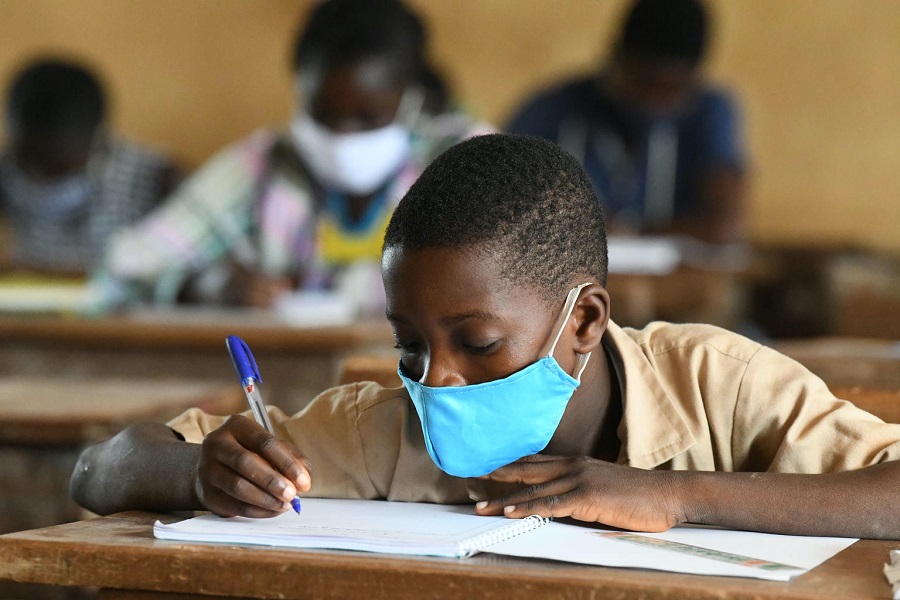Nigeria should invest $1,000 per primary student to curb learning poverty – World Bank report

Nigeria Needs $1,000 Investment Per Primary Student to Tackle Learning Poverty – World Bank Report
According to the World Bank’s Human Capital Public Expenditure and Institutional Review report, Nigeria must invest at least $1,000 per primary student to address the country’s alarming levels of learning poverty.
Financial and Governance Constraints
The report highlights the financial and governance issues hampering the delivery of basic education and primary health care in Nigeria. It reveals that Nigeria allocates only 1.3% of its Gross Domestic Product (GDP) to education, a significant decline from the 2010-2018 average of 1.7 to 1.8%.
Public Spending on Education Below Regional Standards
The report notes that Nigeria’s educational investment is significantly lower than many regional counterparts. Countries like Senegal, Ghana, Côte d’Ivoire, Kenya, and Zambia allocate a higher percentage of their GDP to education. For instance, Senegal spends 5.5% of its GDP on education, compared to Nigeria’s 1.3%.
Necessary Investment Increase
The report emphasizes that Nigeria should be spending at least $1,000 per primary student, requiring a sixfold increase in current spending. Currently, Nigeria’s expenditure is only 3.3% of its GDP per capita per primary student, significantly lower than countries with less learning poverty.
Report Findings
“This level of spending places Nigeria behind West African nations such as Senegal, Ghana, and Côte d’Ivoire, as well as East African countries like Kenya and Zambia. This is in stark contrast to the ambitious pledges made by Nigeria’s political leaders to boost education funding to 4 percent of GDP by 2025, which would represent 22.5 percent of the national budget. In reality, education accounted for only 10.1 percent of total government expenditures in 2021, falling short of both international standards such as the Incheon Declaration (4 percent of GDP and 15–20 percent of budgets) and Nigeria’s own commitments.
“For its income level, Nigeria can afford to spend the equivalent of at least 2.4 percent of its GDP on education. That would be a level similar to that of Pakistan. Many countries in the Sub-Saharan African region devote a much higher share of GDP to education. For example, neighboring Cameroon spends equivalent to 3.2 percent of its GDP. Tanzania and Côte d’Ivoire spend a similar amount, 3.3 percent and 3.4 percent, respectively. At 5.5 percent, Senegal spends the highest share of its GDP on education in Western Africa. Despite large differences in the level of income, Nigeria spends almost at the same level as Sudan.
“More importantly, Nigeria’s low level of learning requires a level of investment much higher than the current one. Nations that boast lower levels of learning poverty (quintiles Q1–Q3) allocate approximately 20 percent of their GDP per capita for each primary school student. In stark contrast, Nigeria’s expenditure is a mere 3.3 percent of its GDP per capita per primary student. Considering its stage of economic development, Nigeria should ideally be investing at least US$1,000 per primary student, which means increasing the per-student expenditure sixfold. Moreover, with a significant number of children not attending school and a rapidly growing school age population, by 2030 Nigeria would need to increase its investment in basic education ninefold from its 2022 level to achieve Sustainable Development Goal #4.”
Budget Allocation
It was earlier reported that the federal government allocated N2.18 trillion for education in the 2024 budget proposal, which is about 7.9% of the total N27.5 trillion budget proposal. This allocation falls short of UNESCO’s recommendation for developing countries like Nigeria to allocate between 15% and 20% of government expenditure to education.
President Tinubu’s Promises
President Bola Tinubu had promised to improve Nigeria’s education sector by putting millions of children back in school and reforming the tertiary education system by creating a sustainable funding model. He signed the Student Loan Act into law, and the program has been launched. However, stakeholders in the education sector recently stated that the reforms and policies in Tinubu’s Renewed Hope Agenda in the sector have not yet been fulfilled. The status quo remains the same, with various policies yet to materialize. Issues such as a high number of out-of-school children, frequent strikes by labor unions in tertiary institutions, limited access and equity in education, and concerns over the global competitiveness of the education system persist.
The Milken Institute is a nonprofit, nonpartisan think tank focused on accelerating measurable progress on the path to a meaningful life. It addresses financial, physical, mental, and environmental health issues, bringing together the best ideas and innovative resourcing to develop blueprints for tackling critical global issues.
